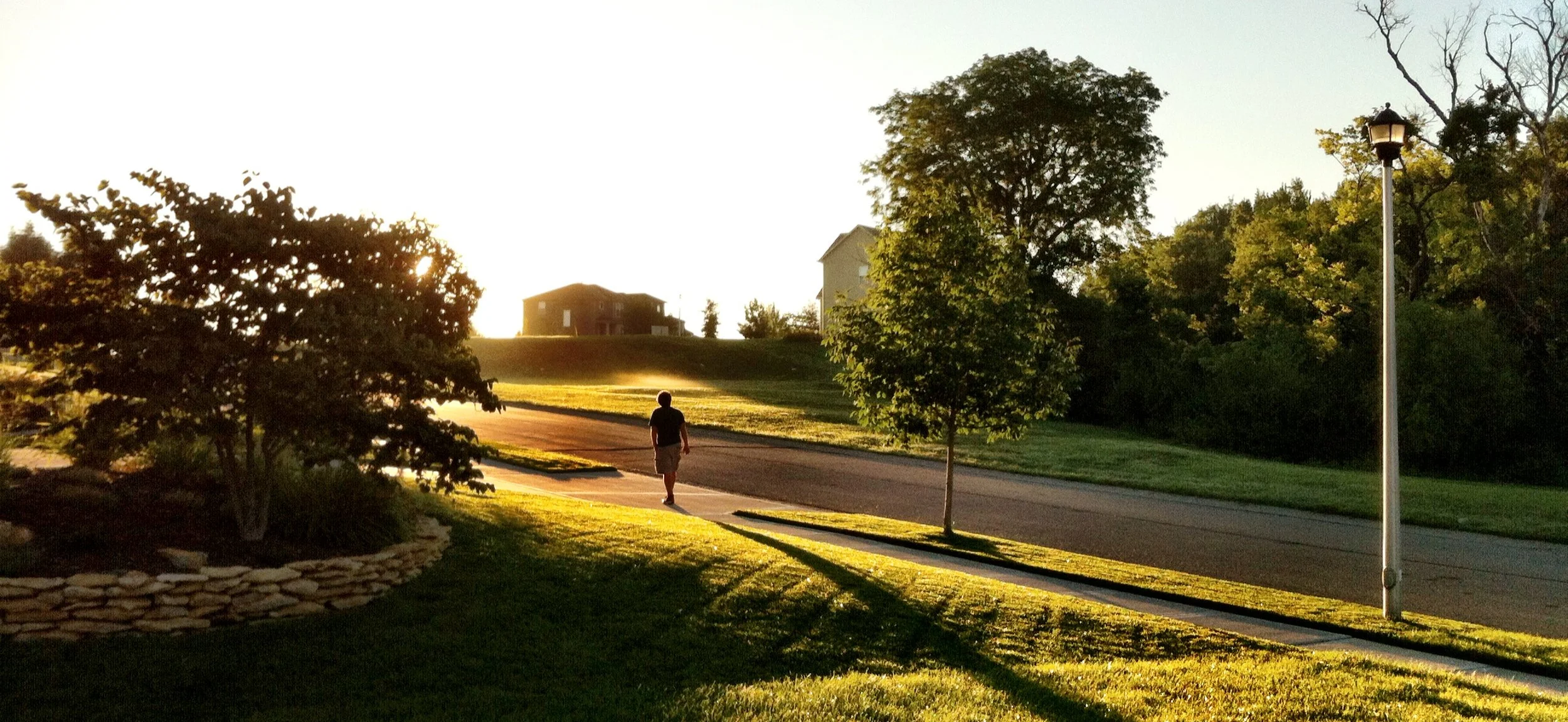Emigration
It was springtime. The sweet perfume of the wisteria dominated the whole street. I approached the house and climbed stairs that were covered by the wisteria in full bloom. The canopy was still intact. The grape- like flowers dangled from the canopy like lanterns. The strong perfume of the flowers filled the air. The roots of the tree had twisted the iron fence even more than I remembered. As a child, I used to climb through it to go to the garden when the door was locked. But where was the house? I could not see it. I had expected the big door to open and to see my Mum and my sisters welcoming me back. No door, no Mum, no sisters. Where did the house go? Where were the palm trees? Where were the citrus trees with the orange blossom perfume that filled the air? Where were the custard apple trees? Were they all gone?
I looked at the empty space and tears ran down my cheeks. I felt as if one had uprooted me and thrown me far away. Where was the Beirut that I had known? I did not recognize the street, the neighborhood or the people that live there. Where had they all gone?
I sat on the steps and cried. That was all what was left of the house: a few palm trees in the garden, a mulberry tree, the stairway and broken walls. Gone were the flowers that my grandfather had brought from tropical countries in the early 1900s. They were so unfamiliar that I got to know their names when I visited South East Asia and saw them there—ginger plants, Hibiscus, Amaryllis, etc.
It had taken me many years to gather my courage and go and see what was left of the house. It was my first visit to the neighborhood since the war had started in 1975. I had left Lebanon to work in the South Pacific Islands in 1974 and was unable to go back for six years. In the meantime, the house had received five bombs and was destroyed. My mother had moved to an apartment and was very depressed to have lost her home. For many years after, I had wanted to go and see the neighborhood but could not get myself to face it. How does one face the destruction of one’s past? The complete obliteration of one’s memories and the destruction of anything familiar to one’s origins? The sense of helplessness, devastation, and sorrow overwhelmed me.
We had a big house. My paternal grandfather built it and he took his time to have it decorated. It was a beautiful Mediterranean house with a brick tile roof and three arched windows ornate with woodcarvings. The ceiling of the big main hall had painted medallions of landscapes from Lebanon: Beirut, Baalbek, Sidon and Tripoli, the main cities of Lebanon. There were many rooms in the house, bedrooms on one side and reception rooms on the other side, in between was the vast hall which could seat more than 100 people.
The ceiling was seven meters high and we used to have a special team come for the spring and fall cleaning, taking off the curtains, washing them and putting them back. Cleaning the big three crystal chandeliers used to be a special task. They were old big ones that used to be lighted by gas and then converted to electricity, so it needed special care to clean them. I remember the electrician that would come twice a year to clean them, with my Mum supervising the process and making sure the lamps that were very thin and ornate were clean and reflecting the light.
We had many big parties in that house, more than a 100 people each time, with music bands and singers till the early hours of the day.
Then the war happened. Five big bombs descended on the house and demolished the top floor. Luckily, my Mum, who was living alone at the time in the big house, got scared and called my sister and told her that she would be leaving the house and would not drive the car since there was no traffic in the streets. The fighting continued for several days and she was not able to go back till a week later. In the meantime, the house was looted and most of our belongings had been taken. I was living overseas at that time and had locked the drawers of my desk with all my papers and pictures. The looters must have thought that I had valuable things in the drawers, so they broke the drawers open and spilled their contents into the street. A neighbor collected the papers and pictures that were thrown into the street and handed them to my mother.
I thought of my Grandfather and my father and what they would think of the craziness that was reigning in Lebanon. I remembered the memoirs of my Grandfather and how he had recorded that each time there was a clash between families, how the notables would intervene and stop the quarrel. Where were those wise people now? How could it be that all the political leaders were not able to sit together and work it out? The country is going down the drain and no one seems to care. It is evident that the politicians are benefiting from the aftermath of the war, just as they have benefited from the war itself. They all became warlords, amassing fortunes from the misery of common people. Is it possible that after nearly thirty-five years after the end of the war, Lebanon still has rationed electric power, no safe water supply, and recently no garbage collection, simply because the politicians cannot agree on their shares of the contract?
This made me decide to emigrate. I had always admired the American system and values, the rights of the citizens and equality before the law. Will this survive the Trump Administration? I hope that it is solid enough to weather all the sweeping changes taking place, as all indications show that the nepotism, oligarchy, and conflict of interest that has plagued the third world for centuries is spreading to the world democracies instead of having the world democracies standing and working together to spread the rule of law and the combat against corruption. I do hope that I am wrong and that there is still room for optimism.









